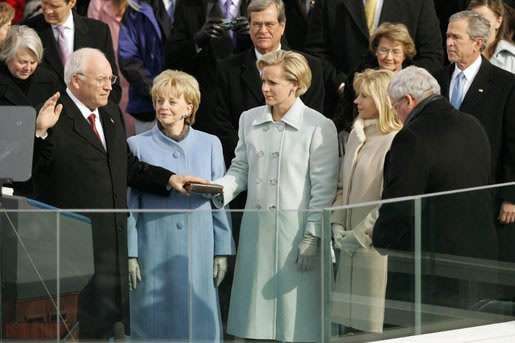Liz Cheney's Failed Campaign Highlights the Declining Influence of GOP Hawks

Liz Cheney has ended her Senate campaign. The daughter of former Vice President Dick Cheney announced that she would no longer pursue a GOP primary campaign against Wyoming Sen. Mike Enzi. National Journal's Josh Kraushaar has the right takeaway:
But most significantly, Cheney found that her calling card in public life as a spokesperson for a muscular, hawkish foreign policy just wasn't playing politically—even in a Republican primary in a deeply conservative state. Cheney entered the race as a go-to conservative expert on the Middle East, but she barely talked about foreign policy on the campaign trail. Voters were more interested in her views on gay marriage than her bromides against the Obama administration over Benghazi.
Her dropping out is a symbolic nail in the coffin to the politics of the Bush-Cheney administration, when foreign policy trumped all and aggressive tactics to combat Islamic extremism were initially greeted with public support.
Cheney dropped out because she had no chance. And she had no chance in part because of the declining influence of the Republican Party's most hawkish members. Her run was, as much as anything, intended as a way to make some noise about the foreign policy issues that party hawks thought were getting lost in the shuffle, and to serve as an opposing voice to what is easiest to describe as the Rand Paul wing of the GOP, which is more worried about civil liberties and less interested in overseas adventurism or maximizing defense-sector spending. That Cheney's campaign gives a sense of the electoral landscape within the GOP. It's hard out there for a hawk.
Cheney's decision to drop out hinged on all sorts of factors that don't necessarily transfer to other races. But if there's a broader lesson here, it's that the party's hawkish old guard may be having more trouble than it used to keeping its candidates afloat. The interest just isn't there. If that's the case, then New Jersey Governor, and likely GOP presidential candidate in 2016, Chris Christie is the most obvious potential loser. He's already settled into the role of the anti-Rand Paul, the anti-libertarian, and the establishment favorite. That's not to say he can't take the nomination. But it does mean that he could have a harder time than someone in that position would have in previous races.


Show Comments (30)